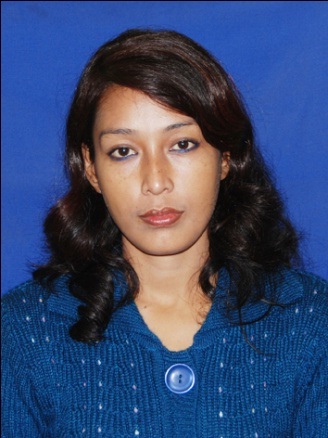AAU-Sugarcane, Medicinal and Aromatic Plants Research Station, Buralikson - 785618
Geographic location of the centre along with different climatic parameters
AAU-Sugarcane, Medicinal and Aromatic Plants Research Station, Buralikson is situated 45 kilometres to the west of AAU headquarters at Jorhat. It is in the Golaghat district (Latitude 26.46oN, Longitude 94.12oE and altitude 86.6 M above sea level) and 12 km away from Dergaon. Buralikson and its nearby villages was the main GUR (Jaggary) supplier to ‘Ahom Kingdom’. Therefore, this place has a historical importance. It is the only research station on sugarcane in the entire North East region. The station is implementing research projects sponsored by both the state govt. and the ICAR. It has the disciplines of Agronomy, Plant Breeding, Plant Pathology, Entomology, Soil Science and Plant Physiology. The weather is warm in summer for 3-4 months, 4-5 months rainy and then 3-4 months cold season. The extreme cold or hot climate is not found in Assam. The historical town of Sivasagar and Kaziranga National Park are the two places of tourist importance nearby AAU-Sugarcane, Medicinal and Aromatic Plants Research Station, Buralikson. There is a hot water spring at Nambar Reserve Forest, famous for rare species of orchids. The places are within 100 km distances. October to March is the suitable time for visit.
Contact details and photograph of the Head / In-charge of the centre and all the scientists:
|
|
||||
|
Concrete findings of the centre appropriate for inclusion in the website:
Impact of Improved varieties:The high yielding mid early varieties viz. Dhanshiri (CoBln9605), Lohit (CoBln9104), Doiyang (CoBln02173), Doria (CoBln9101) and early varieties Borak (CoBln 9103), Kapilipar (CoBln90006), Nambor (CoBln 94063) and Kolong developed by this station has potential cane yield of 80-90 q/ha with sucrose content 18-19% and Jaggery recovery of 10-12% has been adopted by more than 60 per cent farmers of Assam and helped the state for increasing the productivity of the crop and the jaggery production.
New promising Clones identified:
CoBln 04174, CoBln 14501, CoBln 15502, CoBln 16501, CoBln 16502, CoBln 17501 and CoBln 17502, CoBln 19501, CoBln 19502, CoBln 20501
Findings/ Intervention:
Sugarcane Research Station, Buralikson has developed following early and mid late sugarcane varieties to entire NE region.
Varietal Development
| Variety | Popular name | Cane yield (t/ha) | CCS (t/ha) | Sucrose(%) | Special character |
| CoBln 9101 | Doria | 81.41 | 7.58 | 19.36 | Early variety, nonflowering habit |
| CoBln 9102 | Kalang | 87.65 | 7.63 | 18.26 | Early variety, MR to red rot, nonflowering habit |
| CoBln 9103 | Borak | 86.76 | 7.76 | 19.18 | Early variety, tolerant to lodging, nonflowering habit |
| CoBln 9104 | Lohit | 80.60 | 8.88 | 19.62 | Midlate variety, MR to red rot, nonflowering habit |
| CoBln 9605 | Dhansiri | 96.67 | 11.03 | 20.02 | Midlate variety, good ratooner, quick growing and nonflowering habit |
| CoBln 94063 | Nambor | 87.11 | 11.66 | 19.57 | Early variety, nonflo-wering habit, moderately tolerant to flood and water logging. Good for low laying areas. |
| CoBln 90006 | Kapilipar | 85.28 | 10.91 | 19.38 | Midlate variety, nonflo-
wering habit, good quality high gur recovery. Good for low laying areas. |
| CoBln 02173 | Doiyang | 83.73 | 11.29 | 19.34 | Midlate variety, nonflo-wering habit, tolerant to drought with additional higher yielding ability in autumn planting |
Production technology:
- Two bud setts was found at par with 3 bud setts and superior than single bud setts.
- • Application of Metribuzine @ 1.25 kg ai/ha (PE) + Dicamba 350 gm ai/ha at 75 DAP has been found effective in controlling binding weed menace in sugarcane.
- Application of 75% recommended doses of NPK through inorganic +25% NPK through organic +Azotobacter+PSB+Neem Cake +Trash mulching was found to be superior in terms of cane yield in both plant and ratoon crop as organic farming module in sugarcane.
- Plant protection disciplines help to develop suitable early and mid late maturing Sugarcane varieties which are resistant or tolerant to different pests. The disciplines provide some crop protection measures to manage different pest in the farmer fields.
- The center conducts some survey works in different locations of own state and adjoining states on the occurrence of different pests and disease in sugarcane.
- Under the project, some standard procedures were developed to prepare liquid jaggary, powder jaggary, sharbat and jaggary cubes which are very popular in the state.



